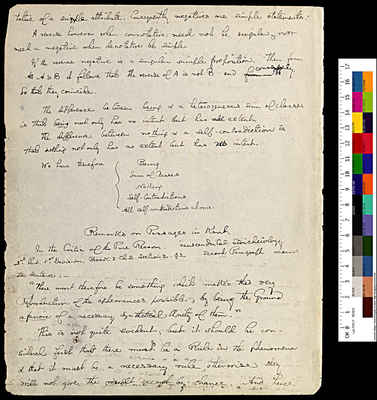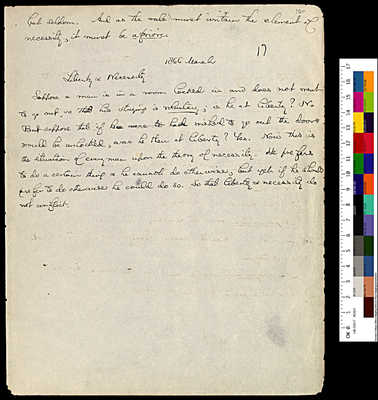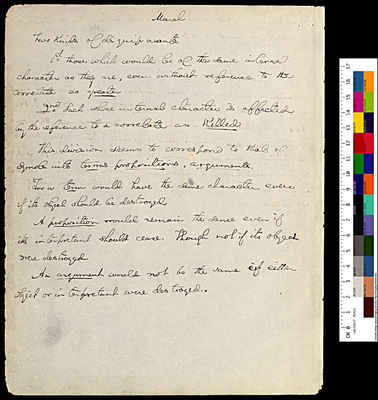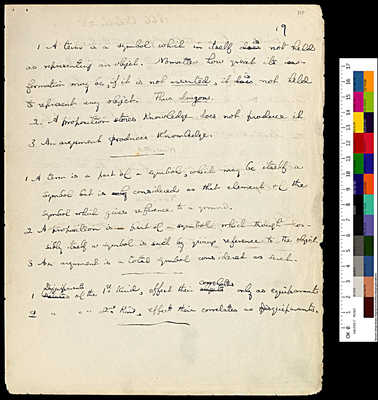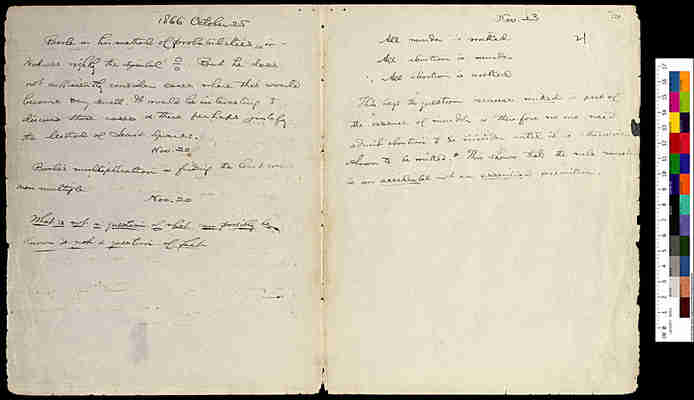Pages
16
but seldom. And as the rule must contain the element of necessity, it must be a priori.
1866 March
Liberty & Necessity
Suppose a man is in a room locked in and does not [want?] to go out, so that his staying is voluntary; is he at liberty? No But suppose that if he were to had wished to go out the doors would be unlocked, was he then at liberty? Yes. Now this is the situation of every man upon the theory of necessity. He prefers to do a certain thing & he cannot do otherwise, but yet if he should prefer to do otherwise he could do so. So that liberty & necessity do not conflict.
17
March
Two kinds of disquiparants
1st those which would be of the same internal character as they are, even without reference to the correlate as greater.
2nd such whose internal character is affected by the reference to a correlate as Killed.
This division seems to correspond to that of [symbols?] into terms propositions, arguments.
For a term would have the same character even if its object should be destroyed.
A proposition would remain the same even if its interpretant should cease. Though not if its object were destroyed.
An argument could not be the same if either object or interpretant were destroyed.
18
11r
19 1 A term is a symbol which in itself does is not held as representing an object. No mattter how great its in formation may be, it is not asserted, it does is not held to represent any object. Thus dragons. 2 A proposition stores knowledge does not produce it. 3 An argument produces knowledge.
------------------------
1 A term is a part of a symbol, which may be itself a symbol is only considered as that element of the symbol which gives reference to a ground. 2 A proposition is a part of a symbol which though pos sibly itself a symbol is such by giving reference to the object. 3 An argument is a total symbol considered as such.
-------------------------
1 Relates Disquiparants of the 1st kind, effect their objects correlates only as equiparants 2 " " " 2nd kind, effect their correlates as disquiparants.
------------------------
